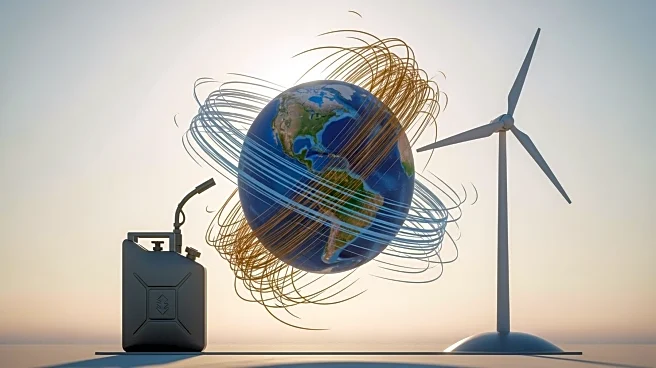What's Happening?
The United States and Qatar have issued a joint warning to the European Union regarding its corporate sustainability directive, which could impact liquefied natural gas (LNG) exports. The directive requires importers to demonstrate efforts in protecting
human rights and reducing emissions, with potential fines for non-compliance. Qatar has threatened to suspend LNG exports to the EU if the directive is implemented. The U.S. and Qatar, which together account for about 20% of the EU's natural gas imports, argue that the directive could disrupt trade and investments, affecting energy security and economic relations.
Why It's Important?
The EU's directive poses a significant challenge to its energy security, especially as it seeks to reduce reliance on Russian gas by 2027. The potential reduction in LNG imports from the U.S. and Qatar could lead to energy shortages and increased prices in Europe. This situation underscores the complex interplay between environmental policies and international trade, highlighting the need for balanced approaches that address climate goals without compromising energy security. The directive's impact on existing and future trade agreements could also have broader economic implications for the EU and its partners.
What's Next?
The EU will need to carefully consider the feedback from the U.S. and Qatar as it moves forward with its climate directive. Negotiations and diplomatic discussions are likely to continue, with potential adjustments to the directive to accommodate concerns from major LNG suppliers. The outcome of these discussions will be crucial in determining the future of EU energy policy and its relationships with key energy partners.
















